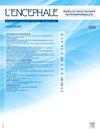[精神病学中病人自主权的 "驴桥"]。
IF 1.2
4区 医学
Q4 NEUROSCIENCES
Encephale-Revue De Psychiatrie Clinique Biologique et Therapeutique
Pub Date : 2025-02-01
DOI:10.1016/j.encep.2024.11.008
引用次数: 0
摘要
在生命伦理学中,病人自主通常被视为一项基本原则,甚至比 "受益"、"非渎职" 和 "公正 "更为重要。受自由主义哲学(如 J.S.米尔)和责任道德(尤其是康德)的启发,这一原则承认人的尊严和每个人对自己的健康做出自由决定的权利。在实践中,这意味着医疗专业人员有义务向患者提供明确的信息,并获得他们的知情同意,同时尊重职业保密性。然而,在精神病学领域,这一原则尤其具有挑战性。精神障碍会影响患者做出决定的能力,从而损害他们的自主权。当精神病患者或严重抑郁症患者拒绝接受必要的护理时,就会出现棘手的情况。这时,照护者就会面临伦理困境:他们是否应该 "为了 "病人的 "好 "而强行治疗,冒着采取家长式方法的风险?这种两难境地揭示了个人自主与人类脆弱性现实之间的矛盾。一些伦理学家提出了一种更具关系性的自主方法,在这种方法中,病人的选择得到了他周围的人和护理人员的支持,形成了一个在相互依存中行使自主权的框架。从这个角度来看,帮助病人并不是否定他们的自主性,而是支持他们的自主性。最后,在精神病学中,对自主权的尊重必须细致入微,允许在某些情况下使用限制性护理来保护病人及其周围人的根本利益。本文章由计算机程序翻译,如有差异,请以英文原文为准。
Le pont aux ânes de l’autonomie du patient en psychiatrie
In bioethics, patient autonomy is often considered a fundamental principle, even more important than beneficence, non-maleficence and justice. Inspired by liberal philosophies (such as J.S. Mill) and the morality of duty (especially Kant), this principle recognizes human dignity and the right of each individual to make free decisions about their health. In practice, this means that health professionals are obliged to provide patients with clear information and obtain their informed consent, while respecting professional confidentiality. In psychiatry, however, this principle is particularly challenging. Mental disorders can affect patients’ capacity to make decisions, thereby compromising their autonomy. Delicate situations arise when a psychotic or severely depressed patient refuses necessary care. Carers then face an ethical dilemma: should they impose treatment ‘for the good’ of the patient, at the risk of adopting a paternalistic approach that is now frowned upon? This dilemma reveals a tension between individual autonomy and the reality of human vulnerability. Some ethicists propose a more relational approach to autonomy, in which the patient's choices are supported by those around him and by carers, creating a framework in which autonomy is exercised in interdependence. From this perspective, helping patients does not negate their autonomy, but rather supports it. Finally, in psychiatry, respect for autonomy must be nuanced, allowing in some cases the use of restricted care to protect the fundamental interests of the patient and those around him or her.
求助全文
通过发布文献求助,成功后即可免费获取论文全文。
去求助
来源期刊
CiteScore
4.60
自引率
7.40%
发文量
162
审稿时长
6-12 weeks
期刊介绍:
Une revue française de renommée internationale.
- Un comite de rédaction représentant tous les aspects de la prise en charge psychiatrique du patient.
- Une sélection rigoureuse d''articles faisant l''objet de plusieurs expertises.
- Des travaux d''auteurs et de chercheurs de renommée internationale.
- Des indexations dans les grandes bases de données (Current Contents, Excerpta Medica, etc.).
- Un facteur d''impact qui témoigne de la grande notoriété de la revue.
La tribune des publications originales de haut niveau.
- Une très grande diversité des sujets traités, rigoureusement sélectionnés à travers des sommaires dynamiques :
- des éditoriaux de médecins référents,
- une revue de presse sur les actualités internationales,
- des articles originaux pour approfondir vos connaissances,
- des mises au point et des cas cliniques pour engager votre réflexion sur les indications et choix possibles au travers de mises en situation clinique,
- des dossiers thématiques pour faire le tour d''une question.
- L''actualité de l''AFPB : L''Encéphale publie régulièrement des comptes rendus de l''Association française de psychiatrie clinique.

 求助内容:
求助内容: 应助结果提醒方式:
应助结果提醒方式:


